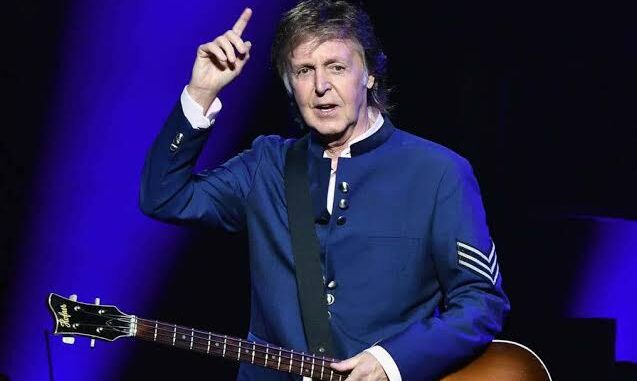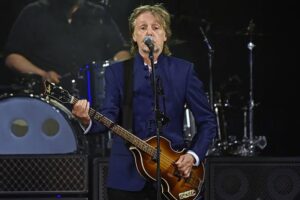
Paul McCartney Boosts the Legacy of Modern Music
In an age defined by viral fame and fleeting influence, Paul McCartney remains an enduring icon, a figure whose musical legacy has not only survived but flourished across decades. With a career that began as one-fourth of The Beatles and evolved into a solo journey marked by reinvention and artistic bravery, McCartney continues to boost the cultural and musical DNA of our time. As trends come and go, his presence feels eternal. He’s not just a legend. He’s a benchmark.

McCartney’s influence is more than historical. It’s active, ongoing and powerful. His recent collaborations with artists from different generations prove that he is not locked in the past. He is a bridge between eras. From working with Kanye West and Rihanna on “FourFiveSeconds” to remixing his 2020 album McCartney III with help from younger talents like Phoebe Bridgers and Dominic Fike, he has proven that he doesn’t need to keep up. He leads.
At 80-plus, he still sells out stadiums, headlines festivals and releases music that demands attention. Most people would have stopped at changing the face of pop music once. McCartney did it in the 60s, then again in the 70s with Wings, then again in the 80s and 90s as a solo artist. And now, in the 21st century, he’s teaching a new generation what it means to last, to evolve, to stay hungry. While others age out of relevance, McCartney reinvents it.
The Beatles catalog remains one of the most streamed in the world, and McCartney’s songwriting continues to be studied in classrooms and imitated in studios. Whether it’s the layered genius of “Eleanor Rigby” or the anthemic simplicity of “Hey Jude,” his compositions are proof that great music doesn’t expire. It resonates. It adapts to the listener and grows with time.
More than a songwriter, McCartney is a storyteller. His lyrics carry the weight of universal themes—love, loss, hope, rebellion. And yet they feel personal. They feel like they were written for you, in the exact moment you needed them. That’s not nostalgia. That’s craft.
In interviews, McCartney often speaks with a humility that feels almost unfair, considering his contributions to the art form. He shrugs off the term “genius” and redirects credit to bandmates, producers, and muses. But humility doesn’t dim his shine. It amplifies it. You get the sense that he knows his worth. He just doesn’t need to announce it. That’s what the music is for.
He has inspired countless artists—some openly, others subtly. From pop to punk, from folk to funk, echoes of McCartney can be heard in chord progressions, vocal phrasings, and even album concepts. He was among the first to treat albums as cohesive statements rather than collections of songs. That idea has shaped generations of artists who now build entire worlds around a single release.
Beyond the music, McCartney’s activism and public presence matter too. He’s been a vocal advocate for animal rights, a champion of vegetarianism, and a supporter of various global causes. His platform has always served a higher purpose. He doesn’t chase headlines. He sets the tone.
It’s tempting to say there will never be another Paul McCartney. But it’s more accurate to say there doesn’t need to be. He’s still here. Still creating. Still performing. And still proving that legends don’t just belong to the past. They can live in the present, shape the future, and walk among us.
If the next generation doesn’t have a Paul McCartney, it won’t be because the mold was broken. It will be because the standard he set is too high for most to even reach. He’s not just a chapter in music history. He’s the whole book. And it’s still being written.